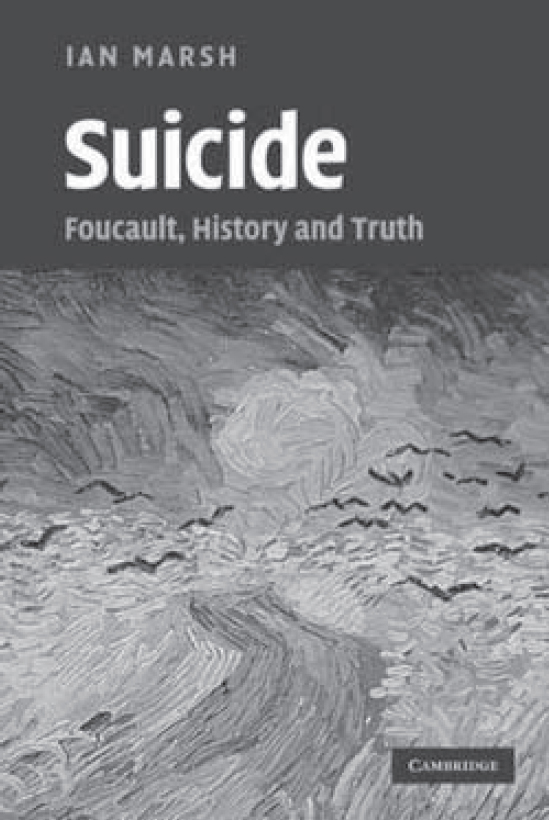
Ian Marsh, an academic who ‘previously worked in a community mental health team’, has produced a puzzling work. For a start, he does not disclose his disciplinary standpoint, although this must surely be influential. The book was initially conceived, we are told, ‘as a form of discourse analysis’, in which the data for examination were ‘the linguistic elements of particular texts’. Now, it ‘examines historical and cultural forces that have influenced contemporary thoughts, practices, and policy in relation to this serious public health problem’. This is an ambitious aim, for which the viewpoint of Michel Foucault may not be a wholly reliable guide.
There are three sections. A short explanation of Foucault's ‘critical analysis of truth’ is followed by an account of the contemporary ‘regime of truth’ in relation to suicide. Finally, six historical chapters consider suicide in periods from Ancient Greece and Rome to the present, followed by a case study of Sarah Kane. This British playwright, who killed herself in 1999, wrote a series of plays in each of which a character attempts suicide, with or without success. These are said to illustrate the ‘process whereby individuals can come to resemble descriptions of pathological identities produced in relation to psychiatric truths and practices’.
Assuming that suicide is undesirable, Marsh says that a more controversial aim, in relation to its prevention, can be ‘the desubjectivisation of those constituted as patients, in relation to their desire to die…a refusal of what is taken to be…a “dissolving” of oneself’. Although admitting that in many cases there is no need for such a critique, the author says that for others ‘formulation of non-lethal strategies of resistance may prove to be of help’. The resistance is to the interfering activities of society, but who the strategies would help is not made clear.
Marsh touches on the later theories of Freud and draws extensively on the work of Nikolas Rose in relation to the ‘diffusion of psychiatric power’. He particularly confronts understanding pathological states of mind as universal phenomena, ‘interpreting them instead as variable cultural and historical contributions’. Interpreted flexibly, such a view is now largely non-controversial. The special value of Foucault's analytic tools is said here to be their ability to expose a whole field of enquiry to new, challenging questions. But is that all, and did it require such a ponderous approach?



eLetters
No eLetters have been published for this article.